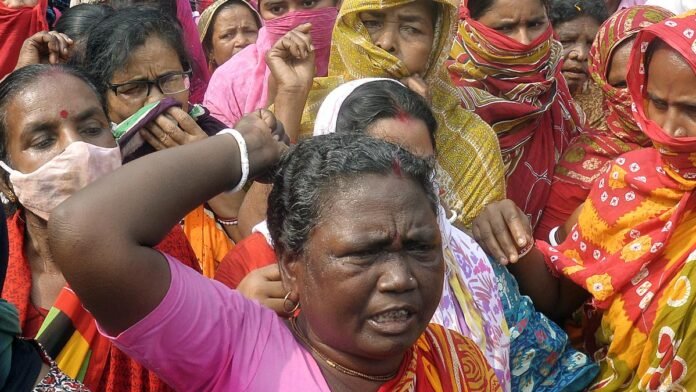The Central Bureau of Investigation (CBI) has taken over the Sandeshkhali probe in West Bengal. This move comes amid growing tensions between the ruling Trinamool Congress government in West Bengal and the Bharatiya Janata Party-led central government.
The Sandeshkhali incident, which occurred in the North 24 Parganas district of West Bengal, left a trail of violence and political turmoil. Allegations of clashes between rival political factions and subsequent casualties prompted calls for a thorough investigation into the matter.
The decision to hand over the investigation to the CBI was met with mixed reactions. While some hailed it as a necessary step towards impartiality and justice, others criticized it as an encroachment on the state’s autonomy and an attempt to undermine the state government’s authority.
The Bengal government’s response to the CBI’s intervention further complicated the situation. Instead of cooperating with the central agency, the state government decided to challenge the move in the Supreme Court, citing concerns over federalism and the infringement of state rights.
This move by the Bengal government has raised eyebrows and invited scrutiny from various quarters. Critics argue that resorting to the Supreme Court reflects a lack of trust in the country’s premier investigative agency and sends a message of confrontation rather than collaboration.
The escalating tensions between the state and central governments have once again brought to the forefront the larger debate surrounding federalism and the balance of power between the Centre and the states. While the Constitution provides for a division of powers between the Union and the states, instances like these often blur the lines and highlight the complexities of governance in a diverse and federal country like India.
At the heart of the matter lies the quest for justice and accountability. Irrespective of the agency conducting the investigation, what remains paramount is ensuring a fair and transparent probe that upholds the rule of law and delivers justice to the victims and their families.
The CBI, despite its prestigious stature as India’s premier investigative agency, has often found itself embroiled in controversies and accused of succumbing to political pressure. Critics argue that the agency’s credibility has been compromised over the years due to its perceived lack of autonomy and alleged interference by the ruling dispensation at the Centre.
In light of these concerns, the Bengal government’s decision to challenge the CBI’s takeover of the Sandeshkhali probe is not entirely unfounded. However, resorting to legal battles may prolong the process of justice delivery and further politicize an already sensitive issue.
As the matter unfolds in the apex court, it is imperative for all stakeholders to prioritize the interests of justice and the welfare of the affected communities. The people of Sandeshkhali deserve answers, and their quest for truth should not be overshadowed by political wrangling and legal maneuvering.
Beyond the immediate ramifications of this case, the larger implications for India’s federal structure and democratic ethos cannot be overlooked. The relationship between the Centre and the states should be characterized by cooperation, mutual respect, and adherence to constitutional principles.
The Supreme Court’s intervention in this matter holds the key to resolving the impasse and restoring faith in the investigative process. It is hoped that the judiciary will uphold the principles of justice and ensure a thorough and impartial investigation into the Sandeshkhali incident, irrespective of the agency conducting the probe.
In the larger scheme of things, the Sandeshkhali case serves as a sobering reminder of the challenges inherent in India’s federal polity and the imperative of upholding the rule of law above political expediency. As the nation watches with bated breath, the pursuit of justice must remain paramount, transcending political divides and institutional rivalries.

